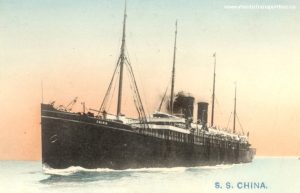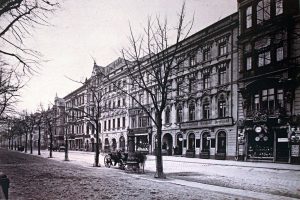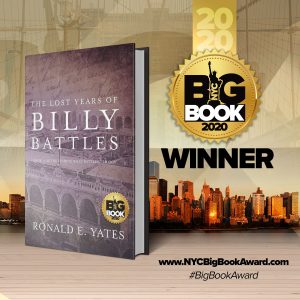During a recent “virtual book tour” with several book bloggers, I was asked what three lessons I learned while writing my Finding Billy Battles trilogy. It was a good question because it caused me to stop and think about the fiction-writing process in a way I never had before.
Here are the answers I provided:
LESSON #1: When I was teaching journalism as a professor and dean at the University of Illinois, I realized that by teaching, I was also learning. The same goes for writing fiction. I spent 28 years of my professional life with the Chicago Tribune, much of it as a foreign correspondent in Asia and Latin America. That work required me to deal with facts, real people, real events, and real human emotions. I couldn’t make up what I was reporting. I had to stick to what I saw, what I heard, what people told me, etc. And I had to do my best to write compelling stories using only those facts. I succeeded, but it was often hard work.

As I began writing the Finding Billy Battles trilogy, I found myself in a strange new world where I could create the facts, the people, the events, and the human emotion. At first, it was an incredible sense of freedom—especially for a journalist previously confined to a life of non-fiction. Then I realized that with freedom comes a requirement for discipline. It was then that I realized my training as a reporter was an enormous benefit. I knew how to write clearly and concisely. I knew how to describe people, places, and events. And I knew how to report—which is the journalist’s word for “research.”
You must keep the story “real” even as you make it up. In historical fiction, which is how I classify my book, you need to understand the boundaries of the time and place in which you are writing. Otherwise, you are forcing your readers, many of whom may be more knowledgeable about the time and place in which you have set your story than you are, to suspend their beliefs beyond what they should.
The only way to describe the time and places in a story, unless you possess a time machine, is to do research—significant research, and that takes us to:
LESSON TWO: I learned that if I was going to write a historically accurate story, I needed to do the kind of research that would allow me to create accurate representations of people, places, and events, as well as the senses that all authors need to engage readers with when writing–smell, sound, sight, touch, and taste.
I spent a lot of time trying to get 19th Century Kansas, Colorado, New Mexico, French Indochina, Hawaii, the Philippines, Yokohama, etc., right. I worked hard on getting the lingua franca of the time and place right. I used a lot of the colloquial speech I grew up hearing my great-grandparents, my grandparents, and my parents use. I incorporated a lot of the idiomatic expressions that were intrinsic to Kansas and the American West of the 19th Century.

Your descriptions of Berlin in 1904 must be accurate. You need to know what the Kurfürstendamm Straße looked like 118 years ago, what trains ran to Charlottenburg-Wilmersdorf, and the way Potsdamer Platz and Alexanderplatz looked. The same goes for Saigon. What did the Rue Catinat look like in 1895 when Billy Battles is there? What about the Continental Palace Hotel where Billy lives (as I did when I was there covering the last stages of the war in 1974-75)? What did the streets look like, the people, and the modes of transportation?
One of the hardest lessons I learned was what to do after the book was published. And that leads us to:
LESSON THREE: I learned that writing the book is the least of the job. Once the book is finished, you must get it out to potential readers, reviewers, etc. Marketing your book is probably even harder than writing it. I have learned that there is an enormous universe out there of book bloggers, reviewers, book websites like Goodreads, Smashwords, Independent Author Network, Historical Novel Society, Createspace, NetGalley, Story Cartel, Book Daily, Authors Den, iAuthor, Book Marketing Global Network, the Alliance of Independent Authors, and any number of writing and publishing contests, etc.
After I had finished Book 1 in the trilogy, I spent 85 percent of my time engaging with book bloggers, reviewers, and the websites above and only about 15 percent of my time writing. So marketing my finished work was a colossal investment in time–and money. My previous books were with traditional publishers, so I didn’t get involved in the marketing process. I probably should have, but that’s another story.
Since publishing the second and third books in the trilogy, I have not spent nearly as much time on the marketing phase. The reason? I set up my various author platforms with the first book. I have a new website, and I write a weekly blog. I have a Facebook author’s page, a Google+ author’s page, a Twitter account, and a LinkedIn account. I belong to and follow probably two dozen writer groups, many of which specialize in the Historical Fiction genre or are set up to assist independent authors.
I also spent time entering various book competitions with the hope of gaining some publicity and credibility with readers. So far, my books have garnered several national and international awards–a fact of which I am mighty proud.

I like the Indie route simply because you have more control over the way the book looks, the content, and the various venues for selling it. However, it does take time, and if you are not ready to make that kind of investment of time, you need to think twice before going the Indie publishing route. As for me, I plan to continue along the Indie path now that I know the lay of the new publishing landscape.
The publishing universe is undergoing substantial changes right now. More and more people are writing and publishing books than at any time in human history. That is both good and bad. It is right that those who could never find a traditional publisher for their work can now publish themselves in venues such as Amazon, Createspace, Smashwords, Goodreads, Google Books, Kobo, etc. Then, there are the hundreds if not thousands of small independent publishers (once called “vanity” presses) that will publish your book for a fee—some more reasonable than others. These, too, are evolving with innovative agreements between themselves and authors that allow a sharing of costs associated with publishing.
The weak links, however, remain marketing and promotion. Those are immensely costly and time-consuming endeavors, and there are no guarantees that they will net you enough sales to offset the time and money you invest. That is why creating a multi-faceted author platform is critical.
Of course, even that won’t work if you don’t have a good product, to begin with. You need a book with a professional-looking cover and a well-formatted interior.
But most of all, your book needs to be well-written. A non-fiction book needs information that readers find informative and valuable, and a novel needs to be able to entertain and engage readers on an emotional level. All of these elements require a commitment of time and a willingness to learn the challenging art and craft of writing and storytelling.
Be warned! There is nothing easy about writing a book. In most cases, you will find that it takes over your life. It’s a solitary activity that takes you away from friends and family for long periods of time. However, once you finish, you will have a sense of accomplishment that those who do not write will never know.
[If you enjoyed this post, please consider subscribing to ForeignCorrespondent and tell your friends to subscribe. IT’S FREE! WHAT A DEAL! If you’ve received this from a friend and would like to be added to our distribution list for future blog posts, please enter your email address in the sign up for notifications box on the right side of this post or at: https://ronaldyatesbooks.com/category/foreign-correspondent You can also find my commentaries on the American Free News Network at https://afnn.us. And please feel free to comment. WE LOVE COMMENTS!]

